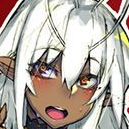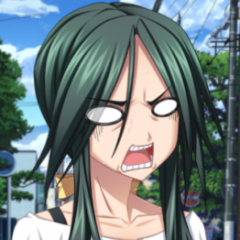Leaderboard
Popular Content
Showing content with the highest reputation on 12/13/17 in all areas
-
Most Hated
Dreamysyu and 2 others reacted to Nandemonai for a topic
That's a common trick, actually. I haven't actually played FSN myself, but I have no problem believing that's why he's there.3 points -

Help playing Little Busters
Dreamysyu and one other reacted to Tamaki Sakura for a topic
Using Little Busters! to learn how route systems work is jumping right into the deep end.2 points -
Oh yeah that reminds me. I also hate the headmistress from Princess Evangile.2 points
-

I Hate Big Backs and I Can Not Lie
akaritan and one other reacted to Fred the Barber for a blog entry
The VN reading community likes to argue over the relative merits of so-called "literal" and "liberal" translation, with most people tending to perceive everyone else as being a hardline supporter of one or the other. While I'm sure everybody who knows my views would classify me as a proponent of liberal translation, I tend to think I'm more a proponent of being accurate to the intent of the original text. This blog post is going to outline a couple of specific uses of language which I believe show some of the weaknesses of attempting "literal translation." This isn't going to be anything like an attempt to provide an exhaustive argument against literal translation, but I'd be lying if I said I wasn't at least trying to be a little bit convincing. Still, regardless of your position on that particular argument, you might at least find the examples enlightening. Broadly, I'm going to be talking about figurative language. That's a fancy phrase encompassing a lot of common expressions and classes of expression which exist in every natural human language, as far as I know, and certainly in both Japanese and English. Idioms, similes, metaphors, hyperbole, personification, symbolism: all of these are classes of figurative language. For starters, let's talk about idioms. The relevant definition of "idiom", per wiktionary, is, "An expression peculiar to or characteristic of a particular language, especially when the meaning is illogical or separate from the meanings of its component words." The argument pretty much writes itself, right? By definition, if you try to literally translate the words in an idiom, you're going to end up with something at best inaccurate, and at worst completely illogical. Just googling "Japanese idioms" and reading what you see is going to find you dozens of examples of cases where you have to either avoid literal translation or end up with a translation that doesn't make sense. For instance, translating 十人十色 as "ten men, ten colors" isn't going to be comprehensible to an English reader, but the venerable English idiom "different strokes for different folks," which is equivalent in meaning if not exactly in tone, is probably going to fit the bill. Idioms offer pretty much a slam dunk argument in favor of liberal translation*. That said, idioms are not that common an occurrence. However, there are also lesser examples: cases where literal translation yields something meaningful and accurate, but still less accurate than a liberal translation could manage. My personal favorite example of a Japanese expression which is not an idiom, but which still benefits massively from a "liberal" translation, is the combination of the noun 背中 (back) and the adjective 大きい (large, big). These two words are often put together in Japanese when praising men, as a way to say a man has a certain, protoypically masculine, attractive physical characteristic. The phrase also carries a subtextual metaphor of reliability: a big back can bear a lot of weight, presumably. Once you start looking for "big backs", you'll see them popping up in literal JP->EN translations all over the place, from Little Busters! to HoshiMemo. The problem is, there's a common English expression which means exactly the same thing as that Japanese expression: "broad shoulders." Now, no dictionary is going to tell you that you can correctly translate 背中, in isolation, as "shoulders." But what's amazing about this pair of Japanese and English expressions is that they not only have the same denotation, but also the same connotation. Both expressions describe the same physical trait, and they both also imply the same personality trait of reliability: a broad pair of shoulders, also, can be trusted to carry your burden. The expression "broad shoulders", like its Japanese cousin, sits somewhere between simple non-figurative use of language and an idiom: just knowing the definition of the individual words gets you to the correct meaning of the expression, and even the connotation of implied reliability, when present, is usually obvious. So, by definition, they aren't idioms. But even so, if translated literally in either direction, the original phrase will end up as a pale shadow of what it should be. I don't know about you, but I'd much rather be described as broad-shouldered than as big-backed. *Unless you believe the purpose of a translation is to teach you Japanese idioms, in which case there isn't enough common ground to even have an argument. I personally like to read translated fiction for the same reason I like to read fiction originally written in English: to enjoy a well-crafted story.2 points -
... aside from Japanese, which I assume every one of us here is pretty fond of So I had this idea and thought that could be interesting since from what I can see we are a fairly multicultural community. That should ward off the stereotypes or at least level it out somehow. So, with your consent, let's get started. As a huge language nerd that I am, I cannot for the life of me list all the languages that I happen to like, but let me at least call out some names, soshite, kono forums wa weeb dakara, let's weeb it up a little by providing some animu songs as samples. Arabic: I love its sound to bits. So badass yet so beautiful. The grammar is nothing short of amazing, you've gotta love semitic non-concatenative morphology. Song Slavic languages: particularly Czech, Polish and Russian. A lot of palatalization and sibilants, along with monstrous consonant clusters. They sound elegant, rich and complex but also sweet and cute. Song Song 2 Song 3 Hungarian: I like slavic, and Hungarian phonology, in spite of the fact that it doesn't have any relation to the slavic family (it's finno-ugric) kinda has a similar touch to it. That aside, I'm a big fan of agglutinating languages with vowel harmony. Song Turkish: have I said that I love agglutinating languages with vowel harmony? Besides, Turkish grammar is incredible, probably the most regular language on Earth. Song Chinese (mandarin) : I'll be honest with you, for the most part of my life, I didn't like chinese at all, nor any tonal languages for that matter. However, due to repetitive exposure and interest in its grammar, little by little I grew to like it quite a bit. Nowadays I find chinese to be a fascinating language with a ton of amazing linguistic features. Don't let the basic appearance of its grammar fool you, chinese is a very complex language at heart. Song German: fairly typical right? Everyone loves German these days. I guess it's the trend right now, probably born due to the number of german bands that started to crop up during this century. Not my case anyway. For me German sounds magical and unique. It's my favorite germanic language along with Icelandic. Song Aaaand I'll stop here. There are a lot more languages that I'd like to talk about, like Welsh and celtic languages, Icelandic, Swahili, Hawaiian, Nahuatl... But the list would not end and sadly I can't provide weeb stuff of those Now it's your turn. Let's see what you guys like, it should prove to be fun and interesting. Also, if you are ok with it, I'd be nice to know what languages you already speak, in order to see how this affects your taste. For the record, my native languages are Catalan and Spanish.1 point
-

Most Hated
BookwormOtaku reacted to Ranzo for a topic
So we all like talking about characters we like the most and love the most but I think we often forget one of the strongest emotions of mankind. That's right, I'm talking about HATE! I know we all have em' so what are yours? Here are a few of mine. Shinji (Fate Stay Night) The moment I beheld his smarmy face I knew I was going to not like him and I was absolutely right. However, I was unaware just how much my loathing would grow. Every single time he appeared my hatred grew and grew until of course the final route and then it just burst. Honestly, I can't think of a fictional character I hate more then Shinji so congratulations to Type Moon! Grave (Symphonic Rain) The very definition of a vile and detestable monster. He is rich, talented, arrogant, and a really abusive father. What he did to Lise was abhorrent and the fact that he seemingly got away with it makes it even worse. Shin (Kara No Shoujo)1 point -
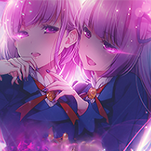
Mangagamer and Friends :D
Plk_Lesiak reacted to -soraa for a topic
The price for Higurashi is great o_O But the games from Pulltop and Princess Evangile are not worth... because no +18 content^^ What do you guys think about it?1 point -
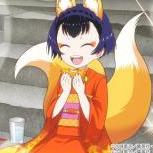
Mangagamer and Friends :D
Silvz reacted to bakauchuujin for a topic
Divinity stage I found to be a bit funny, though there are lots of other moege that I have found to be a lot more funny. Useless Goddess I found to be absolutely boring, the character interactions were not really funny apart from a few scenes. The main draw to to Useless Goddess is of course a goddess who is lazy and doesn't do anything. All interactions with her is low energy and boring. As a principle I play through all VNs I buy and unlock all the CGs from them. This is the only case so far that I almost gave up. I basically had to force myself to get through it.1 point -
Look, I'd prefer if VNs finally took off from the high school setting and offered us MILFs and characters in their 20s, 30s, and so on, with more varied settings and cooler stories. It seems pretty stupid to me that most VNs are aimed to an adult public and still depict teenage characters, I understand that for shounen because that's the demographic, but not this. I know of nukige (huh) with children about 8-10 but I've not played them. I know there are people that do it at 15-16 but not everyone. Even though the most success I've had is with teenage girls, they're fickle as fuck, I suggest moving away from them entirely. There's an upcoming anime about a high school girl romancing a man in his 40s but I laugh it off, besides, how appropriate and totally not sexist, it's always the girl that's young and the man who's mature.1 point
-

Mangagamer and Friends :D
Silvz reacted to bakauchuujin for a topic
I found the lovekami games to be pretty shitty, neither of them have a good story. The characters in divinity stage are somewhat okay, however useless goddess has incredibly boring characters. Just wanted to warn you. Also they are censored. So in conclusion I would not recommend them.1 point -
3E846-2RRDB-T4FRI > Eden* 2FJDV-8LYRW-AI6RG > Evangile 1 (all ages) Decided to give a chance to LoveKami as it seems interesting enough for when I finish the heavier ones in my backlog. The ones above are free to get, as I alredy have both1 point
-

Mangagamer and Friends :D
Silvz reacted to Tamaki Sakura for a topic
For newer titles. Princess Evangile was released before MG started doing 18+ patches. There's a small chance that older Steam titles could receive patches on a case-by-case basis, but don't hold your breath. Censored MangaGamer Steam titles w/out patches: Cho Dengeki Stryker Princess Evangile MYTH eden* and D.C. III R also lack patches, but these games were originally all-ages with 18+ content added later/separately. PM me if anyone has a spare SonoHana key.1 point -

Mangagamer and Friends :D
Dergonu reacted to bakauchuujin for a topic
They should call this the censorship bundle considering how many of the titles are censored.1 point -

One Thousand Lies (free VN review)
Akshay reacted to Plk_Lesiak for a blog entry
As we all know from experience, the formula of visual novel offers various possibilities when it goes to storytelling techniques, making especially the high-budget, Japanese games in the genre much more than just interactive, illustrated books. Still, for most VNs text is unquestionably the core method of delivering the story. This is true especially for the western-developed ones, which rarely can afford high-quality voice acting or animated segments which could occasionally replace written dialogues and descriptions. Even CGs, in a project with a very limited budget and manpower, often end up being few and far between. All this makes the literary quality absolutely crucial for the success of such projects. But, great writing is not something you would expect to find in a free game on Steam, is it? While Doki Doki Literature Club proved that a free-to-play, western-made VNs can from time to time surpass everyone’s expectations, in many ways it wasn’t the first project of its kind. One Thousand Lies, developed by Keinart Lobre and released for free in March 2016, both on Steam and mobile platforms, is another example of an interesting and well-developed non-JP visual novel that doesn't charge even a cent for the possibility of reading it. In my opinion, it’s also one of the more intriguing and creatively written western VNs to date, that can offer a lot of depth and artistic qualities to any reader patient enough to uncover them. Still, it never gathered attention and recognition similar to that of DDLC. Read the full article at evnchronicles.blogspot.com1 point -

Mangagamer and Friends :D
Mr Poltroon reacted to Plk_Lesiak for a topic
Thanks for the info, I would have missed it otherwise. And as I really don't care about the +18 content, it's an all-around great deal IMO. :> I now have redundant Steam keys for Go! Go! Nippon! (taken), If My Heart Had Wings (taken) and A Kiss for the Petals (greedily taken), if anyone wants them please send me a PM. All taken in less than hour, you greedy bastards! <31 point -

One Thousand Lies (free VN review)
Plk_Lesiak reacted to Akshay for a blog entry
It looks interesting and its only 7 hours. You motivated me to read it. I like how you review.1 point -
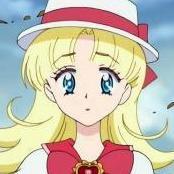
Mangagamer and Friends :D
-soraa reacted to littleshogun for a topic
Well not quite worth it, because most of the title were already available for a long time in other forms. And in regard of eden we already have 18+ version of that, so all age version is quite redundant. There's also Konosora, in which it should be obvious that it was still censored. So if I managed to have the money to buy the bundle, then I'll not spend it on the bundle. PS - Seeing that Mangagamer sold MoeNovel products here was make me wonder of why Pulltop still didn't have their partnership with Mangagamer yet, considering that it might be the best option if we want 18+ version of Konosora and Miagete. Oh well.1 point -
Mangagamer and Friends :D
Mr Poltroon reacted to TheUnknownMercenary for a topic
Hmm I already have most of those and the ones I don't have I won't ever play...but Hell it's a humble bundle, I'll fucking give it away to people for all I care.1 point -
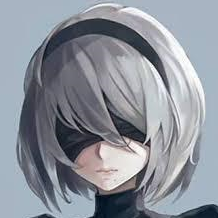
What other languages do you like
PapaRabbi reacted to MaggieROBOT for a topic
In my case, I was unlucky bc french was mandatory from 5th to 9th grade in my school not in the country. And the teachers loved to pull stuff like: in class is "je mange du pain", in test is a page long unknown fairy tale with some really old words... And I probably answered the questions about it with something nonsense in the context like "je suis allé a la plage" bc that is one of the only things I remember of french now.1 point -
Rofl: Speaking on behalf of everyone else here, we don't want them anyways. (/ω\) We have the full versions. (*´Д`) Eden* for 1 dollar is pretty nice though. Already have it, but might as well give some money to charity. So yeah, if someone wants a steam key for Eden*, Higurashi 1-2 or A Kiss for the Petals, drop me a PM. First come first served. (No more than 1 game per person.) EDIT: only Eden left.1 point
-
It most definitely is not a nakige, at least for most of the "routes" (you'll see that ef is more like several kinetic novels put together rather than your typical vn structure. The characters of every story are of course connected). I'd say ef has romance and drama in equal proportions, but, this is important, it's more of a troubled romance, often with twisted circumstances, though the romance itself remains pure, that being the reason why I like it so much.1 point
-
A lot of mine were just generally crazy, one in particular was an extreme control freak. On top of that, French classes are mandatory in Canada from 4th grade to 9th grade, so I had to deal with those teachers for five years1 point
-
I feel sorry you had to learn that... Agreed.1 point
-

What other languages do you like
Thyndd reacted to Huang Ling Yin for a topic
i'm indonesian and live in java so i'm native in 2 languages, bahasa indonesia, and javanese, also learn english and arabic at high school... i learn japanese by my own, and now after several years i can understand *clear* japanese song without problems there is no other language i want to learn at the moment, but chinese is good too...1 point -
Not an anime but whatever I just watched Your Name and that was a damn fine film! A damn fine film! I definitely felt a lot of emotions though no tears It's a shame that I wasn't able to see it in theaters I wish I had known more about it then1 point
-
AH. Then I'm preaching to the choir.1 point
-

Most Hated
MaggieROBOT reacted to NowItsAngeTime for a topic
In that regard I would hate the writer more since it was possible to make them the way they should be instead of just going with some weird fantasy.1 point -

Most Hated
Canicheslayer reacted to Ryleona for a topic
Shinji is a coward, rapist, sociopath, etc. who uses his own family like objects. Why wouldn't you hate him?1 point -

Yoru Meguru, Bokura no Maigo Kyoushitsu
Akeangzx123 reacted to Clephas for a blog entry
This game is the second project made by Samoyed Smile, a subsidiary of the same corporation that owns Softhouse-seal. This is, incidentally, why the game has the really crappy lip-sync and sex animations so familiar from that company's works. That said, this company is not a nukige company, despite the lateral relationship. The game starts with a young teacher, Haruki, teaching a class of dropouts at a night school. Haruki, having had horrible experiences at his first teaching job, has a poor attitude at first, primarily because he was lured by his estranged father with the promise of the equivalent of $4M in inheritance if he succeeded in graduating the last three students at the night school. Haruki is unusual amongst VN protagonists for being an adult with at least some experience in life, and as a character, he is extremely well-written, his humanity laid bare for the reader to see. The situation is also unusual, since VNs with the kind of atmosphere you start with in this game tend to end up as rape/despair spirals in most cases. The heroines are all a bit loopy and the protagonist isn't much better, when it comes down to it (situation-wise). Common Route However, the game's common route is actually fairly uplifting, once you get past the initial bumps in the road involved in the characters getting used to one another. Haruki and the heroines slowly get to know one another and even form the beginnings of something like a bond of trust, which comes to a nice high point before the heroine routes split off. I honestly felt that it was nicely orchestrated, though I did feel that they included an unnecessary number of choices, considering that the events in the common route don't change as a result. Koshimizu Hayate Hayate is a spiky tsundere who never fails to fulfill the best - as opposed to the worst - standards of the archetype. She actually has justification for her attitude, for one thing... she came across her flaws honestly. She is also, despite appearances, probably the most 'normal' of the heroines under the surface. Hayate is a Japanese male name, which should give you at least some idea of why she hates having her name spoken or written. Hayate's problem, like the problems of many runaways, is with her parents. I won't spoil it for you, but it is a pretty deep problem... it reminds me of Fumika from Semiramis no Tenbin, except Hayate is a lot more aggressive and less gentle, lol. Her path is deeply touching, especially as she and the protagonist manage to get over or around their traumas and make peace with who they are. The student-teacher relationship thing doesn't take its usual turns (probably because the night school itself is too intimate for that kind of social drama to occur), so you shouldn't expect the 'oh they got found out, so he might lose his job!' crap you see with similar protagonist-heroine relationships in other VNs. Kadokura Riko and Kadokura Ayako I'm going to be clear about something... I hate real lolicon content in every way, shape, and form. If this path had discarded the H content, I honestly would have loved it, but the h-scenes in this path ruin it. This is one of the few cases where I honestly think that sexual content is an active barrier to enjoyment rather than a mere annoyance. That said, this path is well written... Riko and Ayako are mother and daughter. Ayako is a weak-mannered, weak-willed young woman who had Riko as a young teenager and is now serving as a single mother to her. Riko, for her part, is a 'good girl' (think Sachi from Grisaia, though not quite that extreme). However, there are lots of problems with those two... and the two biggest ones are Riko's 'illness' and Ayako's inability to see anything in a positive light. This path is all about the nature of human weakness and it deals more with the protagonist's issues with his mother, as opposed to the ones with his father (which were dealt with in the previous path). That said, he is far more pathetic in his 'down time' than he was in Hayate's path, so that was another reason why I honestly left this path with a bad taste in my mouth. The main ending (Riko only) is happy, but the other one is obviously a bad ending, albeit one that is probably pleasant in the sensual sense of things. Niijima Kina Kina is a sweet-natured airhead. I don't mean this as an insult... it is an accurate description. She has a definite learning disability, and she is a natural airhead on top of that. That said, she is also determined to learn and the first of the heroines to take a shine to the protagonist, partially because he actually takes the time to create a personalized curriculum for her and partially because he doesn't look down on her after a few initial bumps in their student-teacher relationsip (say what you like about him, but he has to force himself to act like an asshole in most of the cases where he does). Kina's path is about even with Hayate's for quality, overall... but when you find out the full reason why she's attending night school, I guarantee you will either wince or cry. They go into specifics, and it is pretty nasty at times. Kina's path also shows off her best qualities as a character... such as her capacity for love and her empathy. However, it also shows off some of her negative points... such as being consumed by hatred and being just a tad psychopathic at times, lol. Unfortunately, despite rumors to the contrary, she isn't a yandere (I thought she would be, but meh), but she comes close to it sometimes. Probably, if they had a bad ending for this path, she would have gone down that path, since she definitely has potential. Overall Overall, this game was a bumpy ride. Is it good? Yes. Is it perfect? About as far from it as possible while still being a good game. Reading this game is a high-stress experience, and I actually found myself growing wistful for charage by the end. Nonetheless, this game is of a type that is rarely seen these days, lining up with Yume Miru Kusuri for the heart-wounded heroines and screwy psychological twists.1 point -

Most Hated
Canicheslayer reacted to wyldstrykr for a topic
suprised that the headmistress and that one girl from yume miru kusuri1 point -
1 point
-
Thanks. I encoded for a fansub group for a decade so this is not news... the FMAB blurays are however flawless.1 point
-
Koisuru Natsu no Last Resort is a garbage moege. I don't know who recommended it to you, but you should probably kill them. Amatsutsumi may get release by sekai. (If you look at there trello page, they will reach out to the developers if it gets enough notice)1 point
-
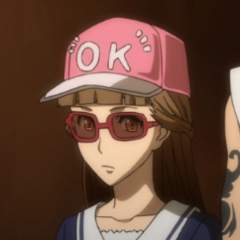
The youngest romancing character for VN/dating sim
RadicalCarenChan reacted to Dreamysyu for a topic
18. (according to the warnings at the start of almost every VN)1 point -
I went to go take a look at Maitetsu's Steam page, only to find it hasn't actually got one. I wouldn't be surprised at all if the game doesn't wind up releasing on Steam after all. And if it does, it will only be because the game's promotional materials (at least the ones up on the game's site right now) aren't pushing the sexualization angle. They push the slice of life angle, none of the characters are explicitly underage, and the main character isn't a grown man with an explicit avowed interest in little girls. Sure, it might be a lolige. But they're not marketing it as one. Whereas The Key to Home sure seemed to have been designed to be marketed that way from the get go. I checked out their Steam page awhile back. It had a screenshot that was obviously supposed to look an awful lot like a footjob without actually being one. It's just much more open and obvious about it, and guess what? Steam has the right not to sell something if they don't want to. It is their service. They obviously know about the porn games flooding onto Steam. They've chosen to throw up roadblocks (the patches thing) but have continued to allow it. They don't need to do that. Nobody has a right to sell their stuff there. If Valve decides "we're not comfortable allowing this title on Steam", they can do that. I'm fine with them doing it because they're worried about bad press if the story somehow blew up. I'm also fine with them doing it because Valve as a company decided 'this makes our skin crawl, we don't want this on our store'. I would not be fine if Valve said something like "if you publish that game anywhere else, we'll never talk to you again". That would be censorship. Valve deciding it doesn't want to carry Imouto Paradise or Suck my Dick or Die or The Key to Home isn't censorship. No one has a right to be heard using any platform they demand access to. That's not how it works. Other folks have the right not to associate with you, if they don't like you. Steam is not a public utility.1 point
-
For obvious reasons, VN vets rarely get up their hopes for games by new VN companies. Generally speaking, most of them are charage or nukige, and those that aren't usually flop on their faces. So, it should come as no surprise that the people I chatted with about this game generally didn't have any hopes for it. However, that is probably because they didn't take a look at the team of scenario writers. The first one, Gihara, was the writer for Tenka Gomen, Shin Koihime Eiyuutan, Shin Koihime Musou Kakumei (responsible for the rewrite), Harvest Overray, and Girls Be Ambitious (something of a cult classic for Japanese fanboys of a certain stripe). Nissy was involved with Hanasaki Work Spring and Gin'iro Haruka. Finally, Toishi Hiroki was involved with Sakura, Sakimashita and Floral Flowlove. By most standards, that is about as solid a team as you can find for any single VN, even if it is essentially a combat sports charage in the same vein as Unionism Quartet and Shirogane Spirits. So, after having done a bit of research on the game and its story, I picked it for my second game this month. Happily, I wasn't disappointed by the results. Oh, by any standard, this game doesn't even approach Aoi Tori for raw quality of storytelling or music. It also has as much lost potential as any other fantasy charage that put effort into creating a complex setting (inevitably, they never go far enough). The protagonist is a little too similar to some others I've encountered, such as the one from Walkure Romanze or Aokana, in that he starts out as a self-pitying loser and spends the entire game in a supporting role. That said, for what it is (a combat sports charage), it is nice and fun. The protagonist, Touki, is a swordsmith who makes spiritual blades combined with mechanical parts called 'Origami' who has lost his ability to make them, leaving him with a bunch of wasted talent and people wondering why he is wasting it (sound familiar?). The combat sport in the game - called Jindou - is basically one-on-one ritualistic duels between wielders of these mechanized spirit blades (the blades grant the user increased physical abilities based on their ability to draw their power out), and three of the four heroines are competitors (two of them newbies, one the highest-rank veteran, a setup that is traditional to the sub-genre). The last one is a fellow maker of Origami, an American arms dealer's daughter named Freesia. The protagonist does manage to get past the big personal issue in the common route, so there is no 'diversion' onto another path in life as is common in many VNs with a similar protagonist (in other words, ignoring the protagonist's scars and leaving him as a loser). This is a huge plus, as this type of character goes... but it is shortly after that event that the paths split. Shion Shion is the protagonist's kouhai, a girl who was going to give up the sword because, due to her high ability to draw out spiritual energy, keeps breaking Origami... and on top of that, she is excessively kind, making it difficult for her to consider hurting others, despite her choice of a future profession. Despite her kind-heartedness, she is a power-fighter, breaking opponents with smashing blows and enduring attacks to lash out at the right moment rather than using technique or speed to overwhelm them. Her path is... interesting. It has the protagonist going farther into confronting his personal issues and past than in the common route, and as a result a rather nasty chain of events occurs that leads into the story's drama after the competition. On a whole, that made this an interesting path... but I was left feeling a bit bored with the rather predictable ending bits. This path could have done with a more bittersweet note in the ending, despite this being essentially a charage (thus requiring good endings). Tsubaki Tsubaki is the school champion and a member of the Suzakuin Family... a family that symbolizes the ultimate swordsman in their sport, because they do everything themselves, from training and fighting to management and the making of the Origami. Tsubaki considers herself to be like an older sister to Touki, whom she lived with for three months as a child when she was learning how to make Origami. Her style is efficient, defined by refined technique, foresight, research, and a cold drive to win. As a result, she tends to let enemies come to her then destroy them with counter-attacks. Her path forces her to confront her own limitations and break the boundaries set by her family, and most of the drama comes from Touki helping her stand on her own feet and realize there is something beyond her training and family's expectations for her to live for. It was a good path, overall... but it completely ignores the issues lurking in the background that erupted in Shion's path, so it left me feeling a bit unsatisfied. Freesia Freesia is the daughter of the CEO of a major arms-maker in America. Upon meeting Miyako (Tsubaki's older sister) she became obsessed with Jindou and eventually discovered a talent for making Origami. She is at the school as a special student, exempted from class because of her high scores and her father's connections. Early in the story, she becomes obsessed with becoming Touki's student. She is very aggressive and straightforward, never bothering to conceal her feelings about anything. She is a perfect example of the fine line between a genius and an idiot (or a madwoman), as some of her Origami are... strange (when she made a light saber, I had to rofl). Anyway, her path is about the way of the craftsman, and it is kind of interesting... However, I feel that they approached it all wrong. First, during the climactic face-off in her path, the results are sort of disappointing. The fight itself is nice, but it feels too much like 'oh, she is the heroine, so lets let her have her way!' Moreover, I am honestly confused that they chose that as the climax, since there is relatively little emotional buildup immediately before. As such, I had to rate this path the lowest of the three I've written about so far, by several levels. Saya Saya is Touki's childhood friend (though he doesn't remember her at first), a brilliant swordswoman who, at first, has no idea of how to use an Origami. Her attitude toward Touki is very much that of a close friend, rather than a deredere heroine, which is unusual for this kind of setup. In addition, she is the 'true' heroine, though if you want to unlock her without playing the other paths, you can do so through the extras menu. As a fighter, she is a speed type, quite simply the fastest of all the heroines by several levels. In addition, she is also highly skilled, though perhaps a few levels below Tsubaki due to her inexperience with Jindou. Saya's path is the 'true path' of this game, and the game treats it as such. The storytelling has even more depth than Shion's path, and it delves far deeper into the past - both Touki's and that of his bloodline. The fights in this path are several levels better than in the previous paths, at least partly because some of them are 'real' (you'll see what I mean if you read this). In addition, several characters whose true desires and intentions never came into the open in the other paths come into play in this path, thus making it... your standard true path, lol. Overall Like a lot of 'true path' games, this game neglects the non-true heroines to an extent and places far too much emphasis on the true path. However, as a whole, the game is a fun read. The three non-true heroine paths read like charage paths, whereas the true one is almost a chuunige there at the end. As a whole, the game is a bit higher in quality than Shirogane Spirits or Unionism Quartet, because it manages to feel 'real' at times (something neither of those games manages, because they never escape the 'combat sport' aspect of their stories). In the end, it was a decent VN, and in another month would have been a decent candidate for the VN of the Month.1 point
-
Aoi Tori is Purple Soft's latest project, a VN based in a girls' school in the mountains, where the protagonist, a priest (I'm assuming Episcopalian/Anglican for various reasons), goes to school as an exception, as he cannot live outside of the school without being taken by demons. Ritsu, the protagonist, possesses the power to take others' negative emotions, thus enhancing their feelings of happiness and joy, and this power works best when he has sex with them. Now, given that he is a young man, you'd think from this description that he was going around finding girls that were in trouble and 'saving' them that way... given eroge culture. However, if anything, it is the reverse... girls that are desperate to escape their personal reality come to him, seeking the happiness he can give, and he has reduced himself to something like an automatic mechanism for giving them what they want. To be blunt, his point of view seems very close to that of a lifelong prostitute, save for the miraculous ability he possesses... moreover, a prostitute who didn't choose the work (his first experiences were all oneshota, apparently). One day, his monotonous days of sex and quiet prayer (it sounds odd, but outside of school, that is pretty much what it was like), a century-old vampire named Mary Harker appears before him, having intruded into his home behind the chapel, and he lets her stay out of kindness. At the same time, a voice (referred to as the 'demon on the phone') tells him over the phone that he has a rather dark fate awaiting him and his power isn't what he thinks it is. This night is closely followed by a number of meetings and reunions... a devout girl with a self-destructive streak a mile wide (Akari), the young teacher who stole his virginity (Risa), and the twin sister he never knew he had (Sayo). In addition, you have Mikako, who is Risa's sister and Ritsu's only friend... and who is a genius as well as a pragmatist. Overall, it is an interesting cast of characters, even for a Purple Soft game. I'm going to be blunt, the part that will put off at least some of you is the sheer amount of sex in the first part of the VN. The game begins with two h-scenes, neither of which involves affection or love, and, while this is a good intro into Ritsu's situation, it also will probably drive the romantics amongst you a bit crazy, judging by my previous experiences. So... if you can't stand a protagonist who doesn't bother refusing sex from women and is used to having sex with girls he doesn't know, you probably won't like this game. That said, there are relatively few similar h-scenes after this, probably in order to keep you from getting too swallowed up by his attitude toward sexual activity. Ritsu is a rather strange young man, even setting aside his destined role as the Prince of Darkness (Mary's term for it). As the demon on the phone puts it, 'You are a madman who can only be satisfied by saving others.' That fits him perfectly, and that part of his personality never really goes away. He is fundamentally a giver, above all other things. Even if he can be convinced by the heroines to be selfish in the now, when things come to a climax, he always falls back on that nature. He is also a natural S and a hedonist (though he is not conscious of this most of the time), and he doesn't have it in him to become paranoid or maintain his anger for long. That said, once he decides on the result he wants, he will literally do anything to achieve it. Mary Harker Mary Harker, in any other game, would be the true heroine. I don't mean to be mean about Akari... she is creepy has hell sometimes, despite her apparent normality (you'll see what I mean if you actually read the first two h-scenes), but if I began this game without a walkthrough or seeing the cover of the game package, I probably would have assumed she was the true heroine. The reason is very simple... she is the catalyst that sparks the game's engine at the beginning, and, given eroge custom, that heroine usually is the true one. Now, her personality... Mary is probably the most cheerful and normal vampire I've seen outside of a 'nerfed' vampire setting (this one isn't, since just a bite is enough to turn someone and she takes injuries from her own prayers and the sun). Nonetheless, she has lived a century, and that has had various effects on her psyche, though the biggest one is a growing awareness that maintaining her humanity and human persona is becoming harder and harder. It is only because of Ritsu that she is able to have some kind of a hope for the future, and she is pretty dependent on him during the story. Despite that, she is also sort-of an oneesan character outside of her own path. She does have a lot of experience under her belt, and her attitude toward him at some times skirts the motherly. Her own path is... a clash of two people destined to live in darkness, her and Ritsu. They are both people who don't understand romantic love at the beginning, so seeing them change is somewhat amusing, but the bigger issue is that their natures press down on them, making a happy romance difficult. Overall, it was a highly emotional experience that I enjoyed thoroughly. I do wish - as I almost always do - that she had a nice long epilogue after story, but I have resigned myself to not receiving what I wish for most of the time, when it comes to that. Akasabi Risa and Akasabi Mikako Akasabi Risa was the protagonist's first sexual partner. Like all the girls who had sex with him in the past, she was seeking escape from reality by having him give her happiness, but she, unlike the others, was actually in love with him from the beginning. Risa is a consummate actress, hiding her true intentions behind her feelings, a technique she apparently developed in the years she was away from Risa. She is also essentially a 'giver' type, willingly giving everything for those she cares about. Mikako is a pretty unusual character. If it weren't for her fondness for Ritsu and her love for Risa, I would be tempted to call her an emotionless sociopath, based on her surface actions. I called her a pragmatist above, but this isn't despite her emotional reactions... it is her natural state of being. Pragmatism is usually a product of socialization and rationality being prioritized over emotion. However, in Mikako's case, she is able to (and does so automatically) completely analyze and render meaningless her emotions before they reach the surface. Her love for Risa is pretty much the only exception, and it is that emotion that renders her as almost human (her fondness for Ritsu exists because she loves Risa and Risa loves him). Now, the demon on the phone takes on a rather more direct role in this story than in Mary's, where he/she is merely speaking to the characters. In fact, the demon's interference is what brings this path's conflict to the surface, and overall, it made this path more interesting than it otherwise would have been. To be blunt, without the demon's 'help', it is highly unlikely that Risa, Mikako, and Ritsu would get together, based on the revelations in this path. There are a number of reasons, but the biggest one lies with the fact that Ritsu quite simply doesn't have strong emotions toward his sexual partners normally (once he actually loves them, it is different)... not even remnant lust. Kurosaki Sayo Kurosaki Sayo is Ritsu's twin, separated from him at birth. She is a cynical, emotionally twisted young girl whose only love is Ritsu (though she does have affection for others based on whether they make Ritsu happy or not) and whose hobby is toying with him and Mary. She appears on the scene shortly after Mary's arrival, guided by the demon on the phone. She is also a part of the demons' plans for him, and that plan is the center of her path. This path is an utsuge-style path... don't expect a happy ending. There is a good reason why Sayo was given to a different orphanage by their mother, and that reason becomes apparent fairly early after Ritsu chooses her. I enjoyed this path and it has some really good cathartic moments... but I honestly thought they were a bit excessively obvious in foreshadowing this one. Afterwards (read this if you don't mind a bit of spoilers) Remember, this is a spoiler. As techniques go, it is interesting, and I felt the need to mention it before Akari's path because of how it leads into it. Umino Akari Akari is... the girl whose outer personality and inner desires are most in conflict. Akari is a devout Christian (Ritsu's assessment), kind-hearted, gentle, and takes pleasure in giving of herself to others. However, she is also strongly driven to seek out danger, corruption, and self-destruction in every way, shape, and form. As one of the milder examples... she is afraid of heights but she willingly participates in the school swim club's high dive competition. A more extreme version is the one you run into at the beginning, in the first scene, where, after watching her friend have sex with Ritsu, she is drawn to him and has sex with him as well. Akari's path is... interesting. Actually, the beginning of the path is slow, because the story refrains from going to the extremes you saw in the common route and the other paths. However, that slow build up is a near-perfect lead into the solid drama leading up to the ending. There is actually very little I can say about this path without spoiling it, but I can say that I liked the ending. I cried numerous times throughout the path, and the ending itself satisfied me completely, a rare event in and of itself. One thing I should note is that there is a distinct Chrono Clock reference in this path, which startled me a bit. It was actually a stronger link than the mention of the kotodama-users early in the common route. For those who are interested, I'll respond in a PM, but I'm unwilling to spoil this. I did laugh though. I'm unsure if this is an affectation or not, but it is interesting. Overall I'm seriously tempted to scream 'kamige!!!' to the sky... but in retrospect, they game does have some distinct flaws. The main one of these is the somewhat haphazard approach to the beginning of Risa's path (it felt kind of like they were shoving things along a little too forcefully in that one). However, even so this is one of the better games that have come out this year, and, in its own way, keeps the Purple Soft fantasy nakige tradition started with Mirai Nostalgia alive and kicking. Where Chrono Clock fizzled and Amatsutsumi committed the sin of using the ladder-style progression system, this game manages to both satisfy and feel like it treats the non-true heroines well.1 point



.thumb.jpg.d039cba08c7ad7caac02c4099f257619.jpg)
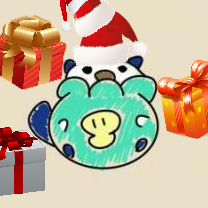
.thumb.png.ef80b4edeaf4f5215327e33be09f1628.png)

